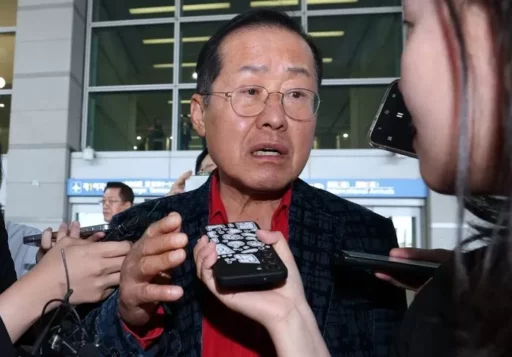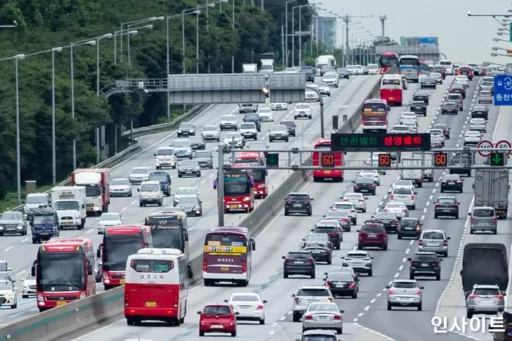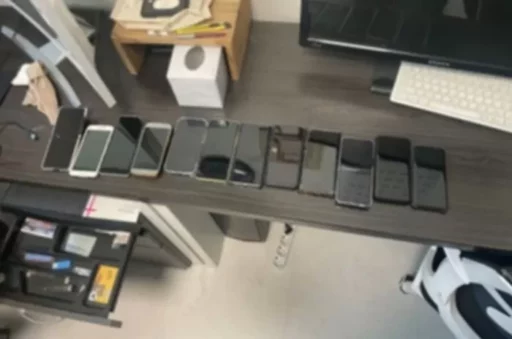Revisions to Auto Insurance Policy Sparks Strong Criticism from YouTubers
The controversy surrounding the revision of auto insurance policy terms is spreading.
Famous automotive YouTubers have been vocal in their criticism of this amendment, which is set to take effect on August 16.
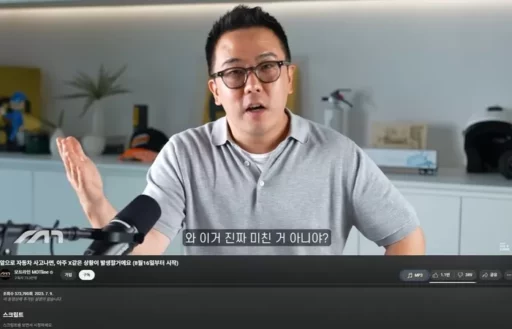
On July 9, the YouTube channel 'Motline,' which has 730,000 subscribers, released a video titled "In the future, if you have a car accident, you'll face a really mess situation," pointing out the issues with the amendment.
Automotive expert YouTuber Kim Han-yong, who has 1.28 million subscribers, also expressed concerns about the matter in his content titled "From now on, only repair with cheap parts… Quality certified parts? The law is about to take effect!" released on the 19th.
The core of this controversy is the change in terms that prioritizes the use of substitute parts instead of original parts during auto insurance repairs.
While insurance companies explain that this measure aims to reduce premiums, many consumers are expressing dissatisfaction, claiming that their choices are being restricted.
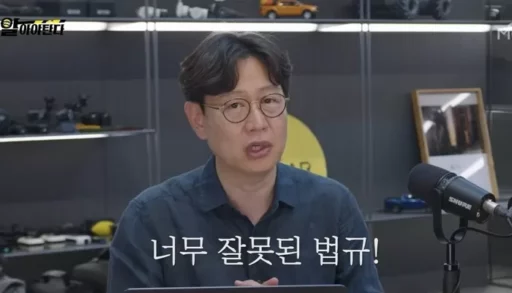
According to the insurance industry on the 22nd, the revised auto insurance policy, which will take effect on the 16th of next month, includes changes to the criteria for insurance payouts, shifting from original parts to "quality-certified parts."
As a result, insurance companies will base the insurance payouts on the overall repair cost, including parts, according to the less expensive option.
Quality-certified parts are those recognized by the Ministry of Land, Infrastructure and Transport as having similar performance and functionality, featuring an average price 30-40% lower than original parts.
The insurance industry expects that once this amendment settles in, repair costs and insurance payout burdens will decrease, contributing to improved loss ratios and stabilization of premiums.
Currently, the loss ratio for auto insurance stands at 82.5% (as of May), exceeding the typical breakeven point of 80%.
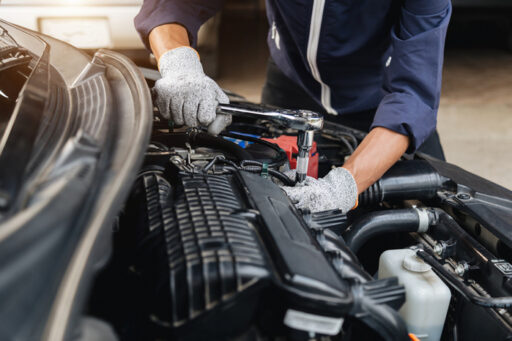
However, consumers are pointing out that this system effectively deprives them of meaningful choices. Since insurance payouts during accident repairs will only be made based on the certified parts standards, consumers will have to bear additional costs if they wish to use original parts.
As of 2023, the rate of non-OEM (original equipment manufacturer) parts used in domestic auto insurance repairs is merely 0.5%, indicating a significantly negative consumer perception towards non-OEM parts.
Many consumers are expressing concerns that non-original parts may not be entirely equivalent to original parts in terms of performance and quality. Worries about durability, lifespan, and potential issues such as vibrations or noise are also growing.
In fact, just a few years ago, both the government and the automotive industry were encouraging the use of original parts.
A campaign involving the Ministry of Land, Infrastructure and Transport, the Korea Transportation Safety Authority, and manufacturers repeatedly emphasized that "original parts are the start of safe driving."
As demands for consumer rights protection and petitioning activities have spread, resistance to the auto insurance policy revision being perceived as a 'bad law' is gaining traction, particularly within automotive online communities.
On the 18th, a national petition titled "Please withdraw the changes to the auto insurance standard terms" was submitted to the Insurance Supervision Bureau of the Financial Supervisory Service through the Petition24 website.
The petitioner argued, "At the moment of needing to repair a car, which is directly linked to life and death, not being able to prioritize parts made directly by the car manufacturer takes away consumer choice."
Additionally, they criticized, "The anxiety about having parts that are not original in the car falls to the consumers. Who benefits from the cost difference in insurance by not using original parts?"
In response, the Financial Supervisory Service has been reported to be discussing measures to ensure that concerns raised in the market do not manifest before the system is implemented.
Image sources: youtube 'Motline motline', youtube 'Kim Han-yong's mocar', illustrative materials for understanding the article / gettyimagesbank, captured from Petition24 website.
